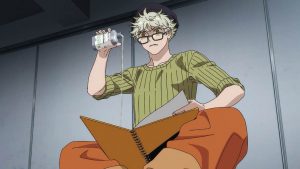 I can honestly say that I now see what all the fuss was about with Blue Period. This last run of episodes has been really spectacular, and the finale more than held up its end of the bargain. I can’t speak to the merit of whatever frustrations manga readers may have, as I haven’t read much of it (though that will change soon enough). There have clearly been some changes, but with series where I don’t know the source material I judge changes on whether their presence is obvious and discordant. And Blue Period’s adaptation passed that test with flying colors for me.
I can honestly say that I now see what all the fuss was about with Blue Period. This last run of episodes has been really spectacular, and the finale more than held up its end of the bargain. I can’t speak to the merit of whatever frustrations manga readers may have, as I haven’t read much of it (though that will change soon enough). There have clearly been some changes, but with series where I don’t know the source material I judge changes on whether their presence is obvious and discordant. And Blue Period’s adaptation passed that test with flying colors for me.
 As I’ve noted ad nauseam, I’m not an artist by any stretch of the imagination. But I am someone who’s been a teacher, and for whom teachers were an incredibly important influence. And I’m someone who can refer to his own creative experience. For me, it’s so synonymous with self-doubt that they may as well be one and the same. It starts the moment I begin writing something and doesn’t stop until- well, ever. Nothing is ever truly satisfying, and nothing is ever good enough. For those reasons Yatora’s experience resonates with me on a deep and personal level.
As I’ve noted ad nauseam, I’m not an artist by any stretch of the imagination. But I am someone who’s been a teacher, and for whom teachers were an incredibly important influence. And I’m someone who can refer to his own creative experience. For me, it’s so synonymous with self-doubt that they may as well be one and the same. It starts the moment I begin writing something and doesn’t stop until- well, ever. Nothing is ever truly satisfying, and nothing is ever good enough. For those reasons Yatora’s experience resonates with me on a deep and personal level.
 I don’t find Yatora’s relentless self-criticism tiresome because for me, that’s essentially what the creative process is. I do sometimes feel a certain irritation at his constant projection of confidence and brilliance onto others – but that’s exactly how we’re supposed to feel. Yotasuke-kun’s impatience with Yatora stems mostly from this. Imagine having just as much insecurity as anybody and constantly being told how great and confident you are. He expresses his doubts differently than Yatora, true, but Yotasuke’s burdens are no less heavy.
I don’t find Yatora’s relentless self-criticism tiresome because for me, that’s essentially what the creative process is. I do sometimes feel a certain irritation at his constant projection of confidence and brilliance onto others – but that’s exactly how we’re supposed to feel. Yotasuke-kun’s impatience with Yatora stems mostly from this. Imagine having just as much insecurity as anybody and constantly being told how great and confident you are. He expresses his doubts differently than Yatora, true, but Yotasuke’s burdens are no less heavy.
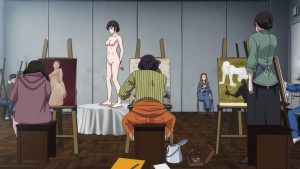 If Yatora had a eureka moment in this exam process, it’s when he came to peace with who he is, after a fashion. If his self-identity is as a grinder rather than a natural, his best bet is to embrace his obsession with process and self-examination and make it a strength. I think this is what he means when he refers to himself as “transparent”. And it’s what prompts him to say something about the exam to Saeki-sensei which struck me as genuinely profound – “I have no regrets, but I have a mountain of stuff to reflect on”. I actually think that’s an ideal landing spot for a creator – and having found it reflects just how far Yatora has come as an artist.
If Yatora had a eureka moment in this exam process, it’s when he came to peace with who he is, after a fashion. If his self-identity is as a grinder rather than a natural, his best bet is to embrace his obsession with process and self-examination and make it a strength. I think this is what he means when he refers to himself as “transparent”. And it’s what prompts him to say something about the exam to Saeki-sensei which struck me as genuinely profound – “I have no regrets, but I have a mountain of stuff to reflect on”. I actually think that’s an ideal landing spot for a creator – and having found it reflects just how far Yatora has come as an artist.
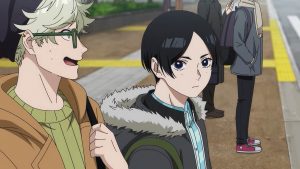 One of my favorite parts of the episode, actually, was the conversation between Yatora and Yotasuke during the lunch break on the final day. It was genuinely moving to see how happy Yatora was that Yotasuke got his painting – and to hear from this of all comrades that he’d gotten better. Yatora is a genuinely humble person (to a fault, surely), and I find the unlikely friendship between these two genuinely charming. Yotasuke edging away from Ya-kun when he broke down was a much-needed moment of levity, but in point of fact what he’s actually been doing is edging closer to him. For a loner like Yotasuke, the idea of a genuine confidant – maybe his first ever – has to have a powerful appeal. And Yatora, so different than he and so open, may finally be the person he can trust to be that for him.
One of my favorite parts of the episode, actually, was the conversation between Yatora and Yotasuke during the lunch break on the final day. It was genuinely moving to see how happy Yatora was that Yotasuke got his painting – and to hear from this of all comrades that he’d gotten better. Yatora is a genuinely humble person (to a fault, surely), and I find the unlikely friendship between these two genuinely charming. Yotasuke edging away from Ya-kun when he broke down was a much-needed moment of levity, but in point of fact what he’s actually been doing is edging closer to him. For a loner like Yotasuke, the idea of a genuine confidant – maybe his first ever – has to have a powerful appeal. And Yatora, so different than he and so open, may finally be the person he can trust to be that for him.
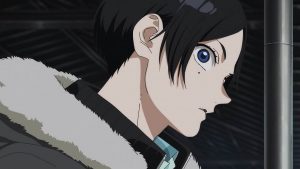 Sadly, among the core group only those two boys got in – in fact, Ooba-sensei notes that only three first-time applicants in the oil painting division were accepted (Yatora’s refusal to believe it until it was inescapable really resonated with me). Haruka doesn’t get in and neither, surprisingly, does Maki. Her talent and polish is undeniable – I wonder if she’s a little too “conventional” for what Geidai is looking for. Maki has been under the influence of artists her whole life, has been honing her talent for a long time. I’m reminded of the (possibly apocryphal) story of Vince Lombardi watching two youngsters try out for the Packers, one with perfect running form and the other a disjointed mess. He supposedly chose the latter on the grounds that he was the one for whom his coaching would have the biggest impact.
Sadly, among the core group only those two boys got in – in fact, Ooba-sensei notes that only three first-time applicants in the oil painting division were accepted (Yatora’s refusal to believe it until it was inescapable really resonated with me). Haruka doesn’t get in and neither, surprisingly, does Maki. Her talent and polish is undeniable – I wonder if she’s a little too “conventional” for what Geidai is looking for. Maki has been under the influence of artists her whole life, has been honing her talent for a long time. I’m reminded of the (possibly apocryphal) story of Vince Lombardi watching two youngsters try out for the Packers, one with perfect running form and the other a disjointed mess. He supposedly chose the latter on the grounds that he was the one for whom his coaching would have the biggest impact.
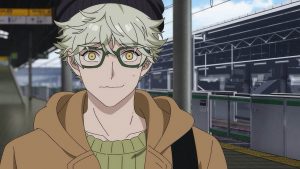 The aftermath of this moment is what it is. I’ve been a kid, I’ve been there. For Maki it’s denial, then raw and unadulterated pain. Yatora can’t really process it, but those around him can – hell, even his father opens his mouth to offer congratulations. I was glad (but not surprised) that he took the time to properly thank his teachers, without whom he surely wouldn’t have made it this far. Saeki helped him realize this was his path, and Ooba gave him the support he needed to succeed on that path. I rarely see teachers celebrated so eloquently and powerfully as Blue Period does, and that’s an element of the series that I appreciate very deeply.
The aftermath of this moment is what it is. I’ve been a kid, I’ve been there. For Maki it’s denial, then raw and unadulterated pain. Yatora can’t really process it, but those around him can – hell, even his father opens his mouth to offer congratulations. I was glad (but not surprised) that he took the time to properly thank his teachers, without whom he surely wouldn’t have made it this far. Saeki helped him realize this was his path, and Ooba gave him the support he needed to succeed on that path. I rarely see teachers celebrated so eloquently and powerfully as Blue Period does, and that’s an element of the series that I appreciate very deeply.
 As an anime fan, there’s a special sort of mixed emotion that comes along with a finale like this. This adaptation was, effectively, the prologue – half the manga yes, but the real story begins at this point. With seinen that’s usually where it ends, and we’re lucky to have access to the manga in English (though the official releases are well behind the original). It’s frustrating as hell to have this cycle repeat itself, over and over, to always be left wanting more. But Blue Period at least ends at a point that feels like an ending. The season told a story to its logical conclusion – not the story, maybe, but a story nonetheless.
As an anime fan, there’s a special sort of mixed emotion that comes along with a finale like this. This adaptation was, effectively, the prologue – half the manga yes, but the real story begins at this point. With seinen that’s usually where it ends, and we’re lucky to have access to the manga in English (though the official releases are well behind the original). It’s frustrating as hell to have this cycle repeat itself, over and over, to always be left wanting more. But Blue Period at least ends at a point that feels like an ending. The season told a story to its logical conclusion – not the story, maybe, but a story nonetheless.
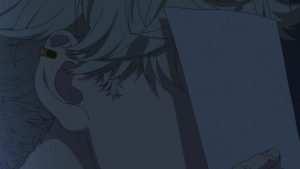 That said, I don’t think it makes sense to totally discount the possibility of another season at some point. Blue Period is quite a popular manga, especially considering how demanding it is of the audience. That it is so successful is a testament to the sheer quality of the writing, and I think to the fact that it fills a niche that’s far from crowded. This is a series of substance, depth, and subtlety – an intelligent work that respects the intelligence of its audience. As different as we all are, there’s something of the human experience that’s universal, and any story that captures that experience this well is always going to find an audience.
That said, I don’t think it makes sense to totally discount the possibility of another season at some point. Blue Period is quite a popular manga, especially considering how demanding it is of the audience. That it is so successful is a testament to the sheer quality of the writing, and I think to the fact that it fills a niche that’s far from crowded. This is a series of substance, depth, and subtlety – an intelligent work that respects the intelligence of its audience. As different as we all are, there’s something of the human experience that’s universal, and any story that captures that experience this well is always going to find an audience.
ED Sequence:


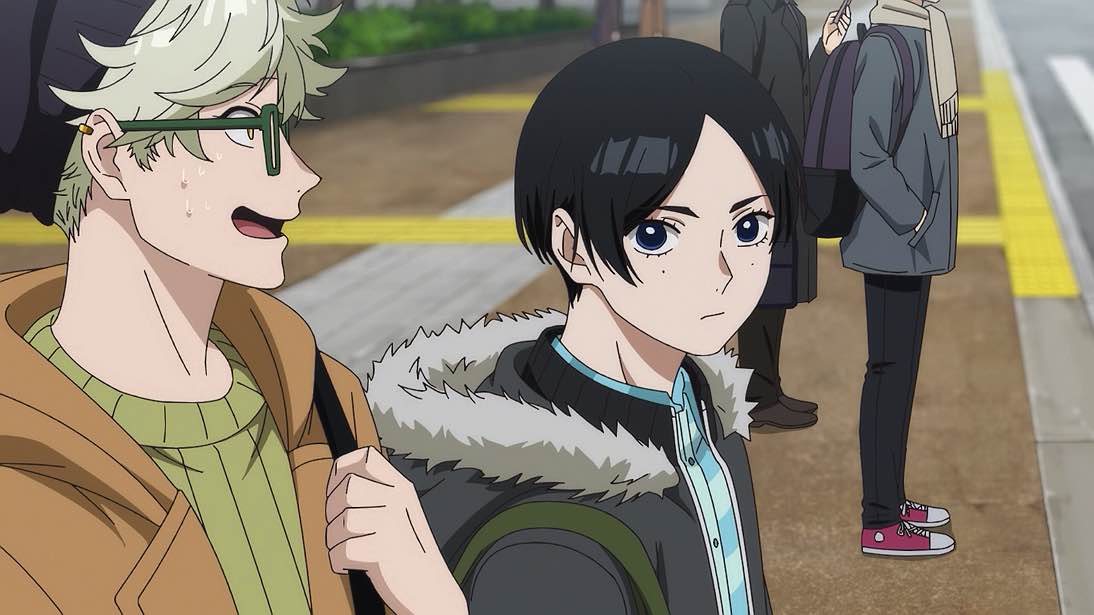
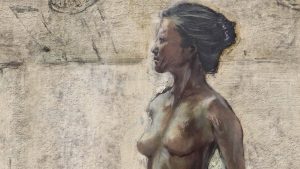
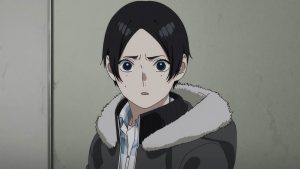
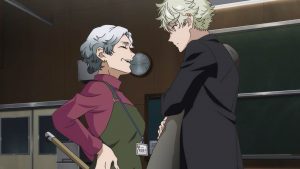
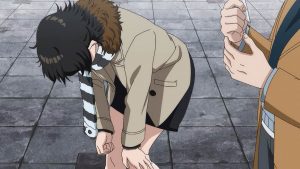
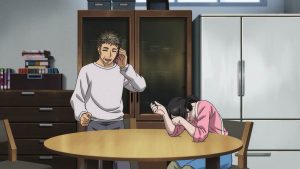
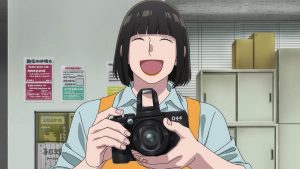
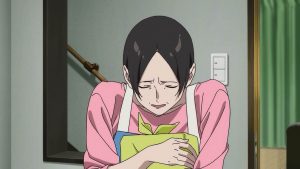
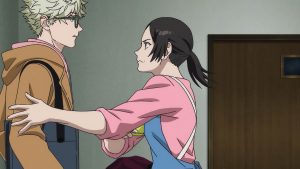
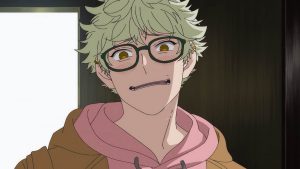
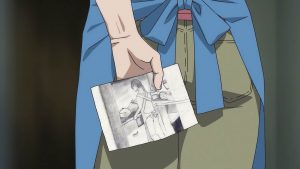
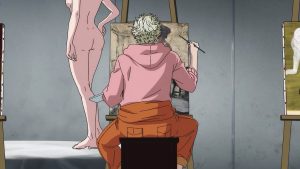
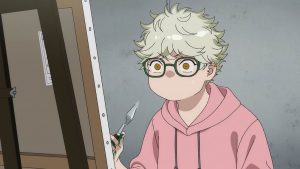

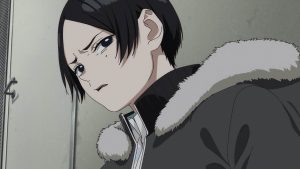
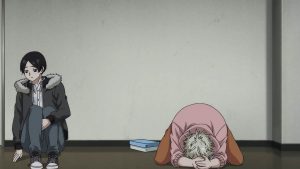
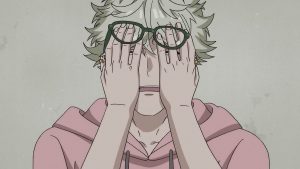
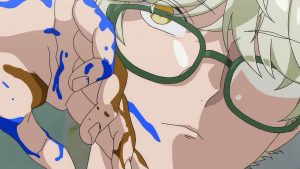
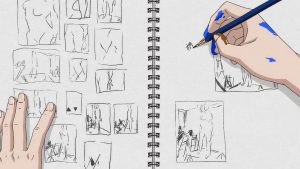
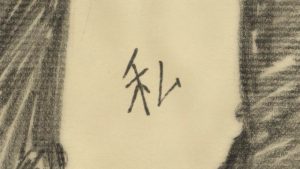

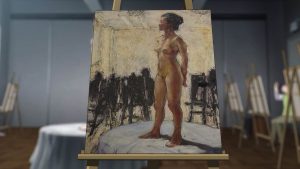

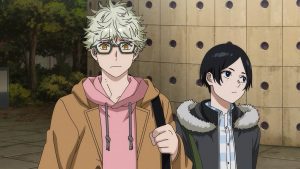
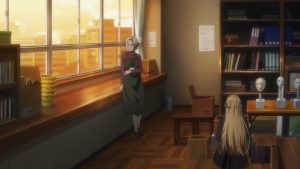


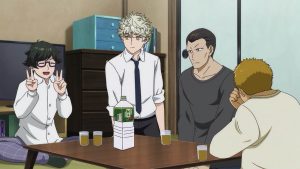

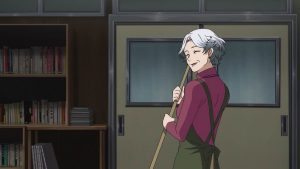

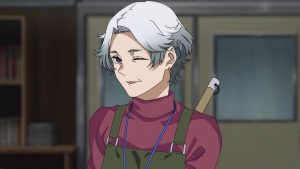
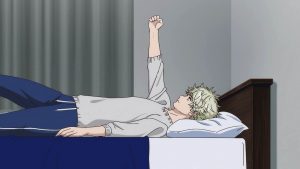
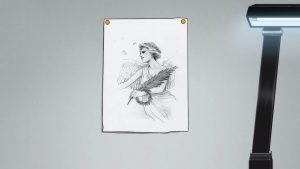


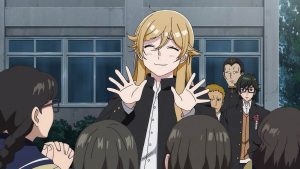
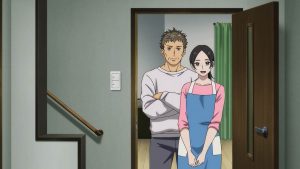
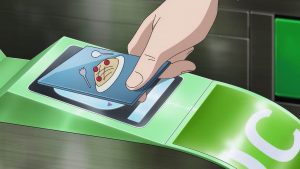

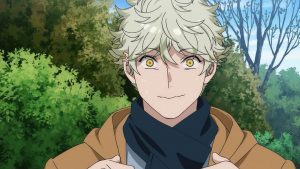
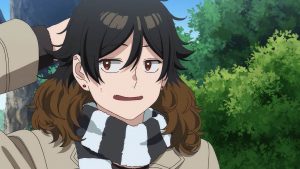

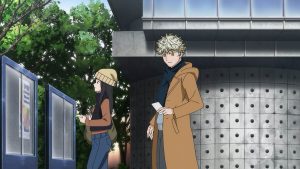

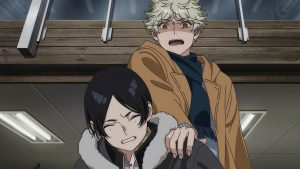
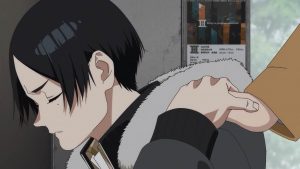

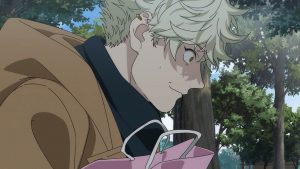
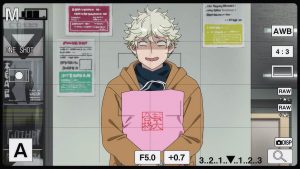
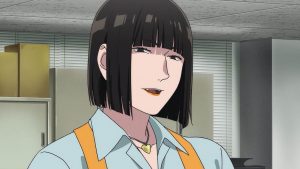
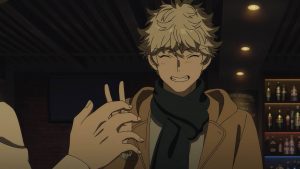
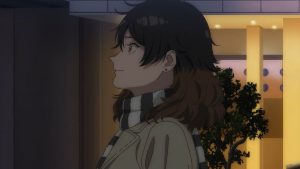
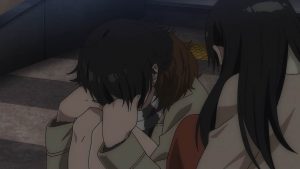
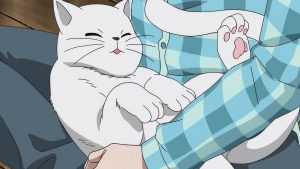
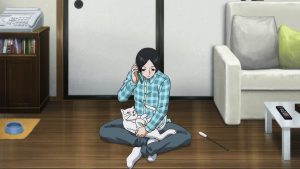
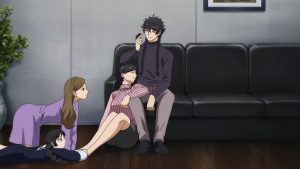
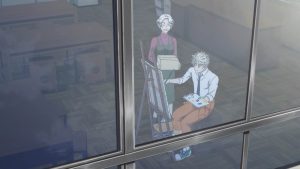
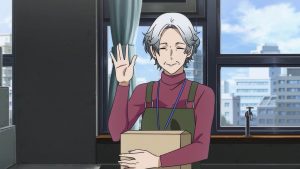
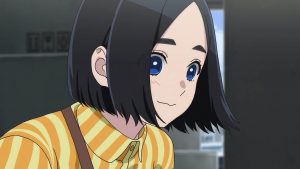
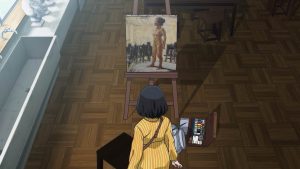
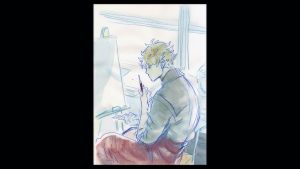

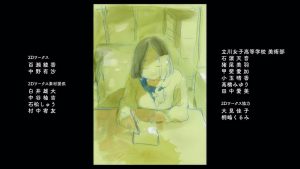


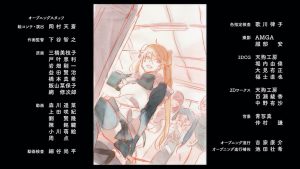
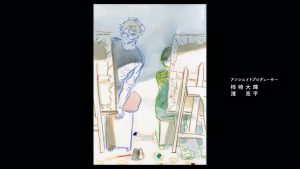
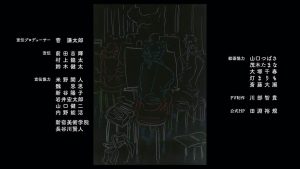
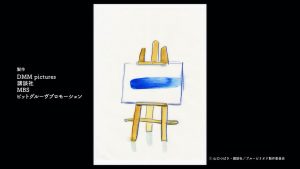
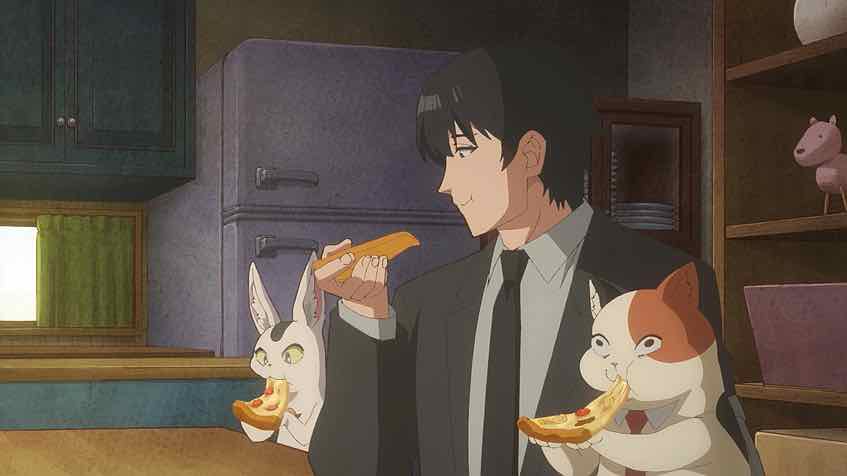
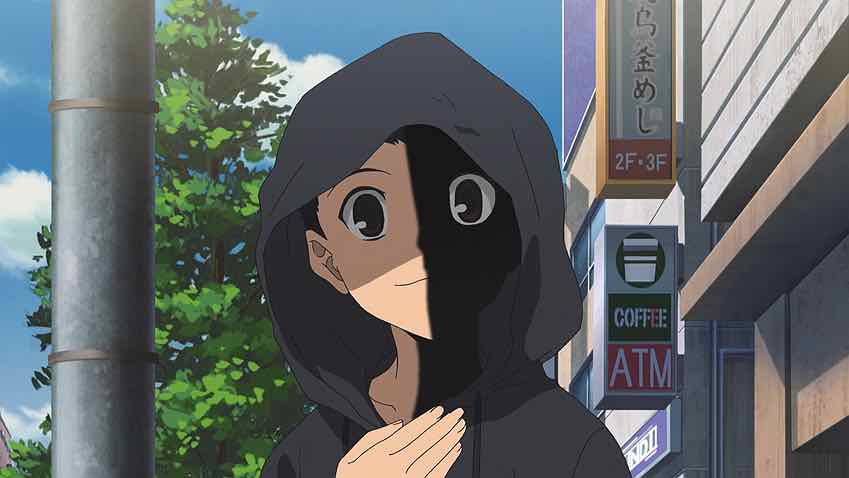
leongsh
December 12, 2021 at 11:51 pmThat final day lunch time talk had Yotasuke taking the initiative to sit beside Yatora before having his daifuku dessert. He had lunch separately but made it a point to approach Yatora because he wanted to ask Yatora about his painting. Yotasuke is reaching out from his shell. There’s still a ways to go.
Only 3 “first-timer” applicants that were successful. Yotasuke and Yatora being 2 out of the 3 first-time applicants. There are more with made it into the oil painting division but they are not first-time applicants.
The ending they chose to leave us with is also a 180° turn around – where Yatora was inspired by Mori’s large painting to step into the art and now, Mori seeing his duplicate painting of his exam piece and finding it beautiful.
———-
Next “challenging” adaptation coming soon is “Dance, Dance Danseur”. Hope you are open to it. It’s one of the many manga titles that I follow.
Guardian Enzo
December 13, 2021 at 6:42 amDuly noted.
Snowball
December 13, 2021 at 12:20 amThis is definitely top quality material.
Earthlingzing
December 13, 2021 at 1:12 amI liked how they wrapped everything up, this is one of the neatest endings in a while.
Derrick
December 13, 2021 at 12:48 pmwell Devil is part timer got season two, I can wait several years for more Blue Period.
Also, it’s good that the subject is Art. Author can explore this even until Yatora’s old age (the manga is still in University period, so let’s not hold our breath)
Dop
December 13, 2021 at 11:23 pmI rarely see teachers celebrated so eloquently and powerfully as Blue Period does
Oh yes, if there’s a “Best Teachers In Anime” top ten Saeki and Ooba need to be at the top because not only were they just good mentors to the protagonist but they were really good characters in their own right.
Would love to see this get a second season some time though they ended this season in a way which is very satisfying.
Gina
December 14, 2021 at 11:54 amIt’s interesting to speculate how Maki failed the entrance exams despite her talent and honed techniques. Perhaps it was because she didn’t convey the creative process on the sketchbook well enough to make it through – she did have a distinct style and may have stuck too comfortably to her roots.
It can also be the exam question that restricted her from expressing her work.
Since there is no right and wrong in art, it is so easy to get stuck in a creative quagmire or fail to get your point across. Hence, Yotasuke’s validation of Yatora’s work was all the more powerful and helpful, and Yatora could reinforce the direction he was heading. Despite Yota’s cold demeanour, he actually pays a lot of attention to Yatora.
Rob Barrett
December 14, 2021 at 1:39 pmStuck the landing, with (as OGH notes) a lovely callback to Yatora’s epiphany in episode 1.
DonkeyWan
December 15, 2021 at 6:06 amBest anime of the season for me, in fact best for a long time. The kind of anime that restores your faith in the medium and makes you look forward to more.
leongsh
December 15, 2021 at 4:03 pmThat’s because the anime adaptation lets the strength of the manga material shine through. Except for some basic technicals about art and art school being edited out, most of the content covered by the adaptation was left intact. Furthermore, the voice actors did a good job in conveying the feelings and thoughts of the characters in the anime adaptation.
In Asian Spaces
January 3, 2022 at 3:38 amThis was a lot of fun to watch (and read) about!
If the goal of adapting half of the manga was indeed to bolster sales, I think it achieved its purpose. I wonder if we’ll get a season 2?
Guardian Enzo
January 3, 2022 at 9:12 amI hope so, but it seems unlikely to me. Not impossible – if I were betting, I’d say 70-30 against. I do see a fair amount of Blue Period cross-marketing out there, which is a somewhat hopeful indicator.
In Asian Spaces
January 4, 2022 at 2:15 amThat is a fair assessment. Let’s keep our fingers crossed! ☺